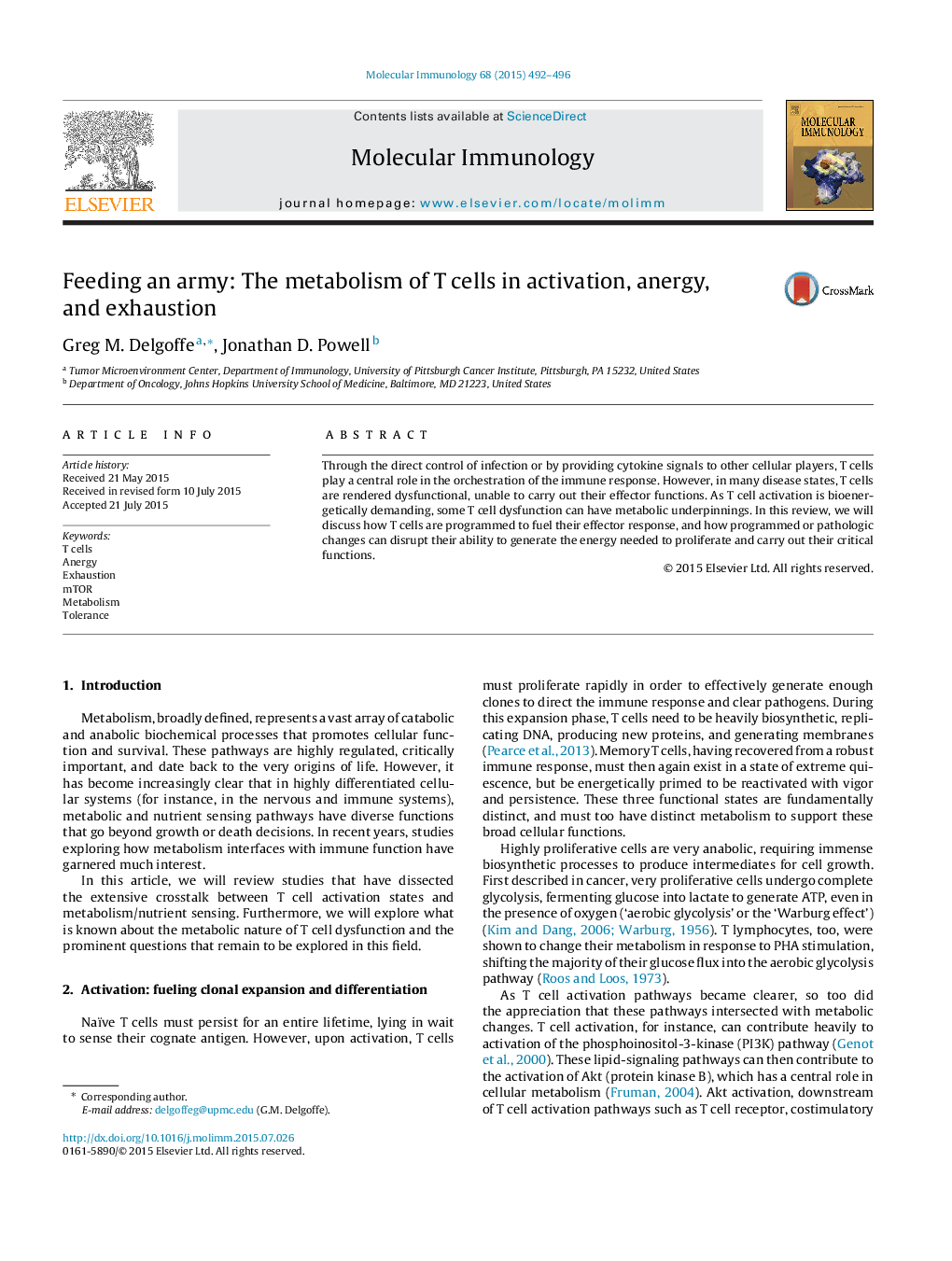| Article ID | Journal | Published Year | Pages | File Type |
|---|---|---|---|---|
| 2830664 | Molecular Immunology | 2015 | 5 Pages |
•T cells dramatically change their metabolism to support effector cell expansion.•T cell clonal anergy induces programmed changes in metabolism which can underlie hyporesponsiveness.•Dysfunction in T cell exhaustion may be linked with an inability to meet these metabolic requirements.
Through the direct control of infection or by providing cytokine signals to other cellular players, T cells play a central role in the orchestration of the immune response. However, in many disease states, T cells are rendered dysfunctional, unable to carry out their effector functions. As T cell activation is bioenergetically demanding, some T cell dysfunction can have metabolic underpinnings. In this review, we will discuss how T cells are programmed to fuel their effector response, and how programmed or pathologic changes can disrupt their ability to generate the energy needed to proliferate and carry out their critical functions.
